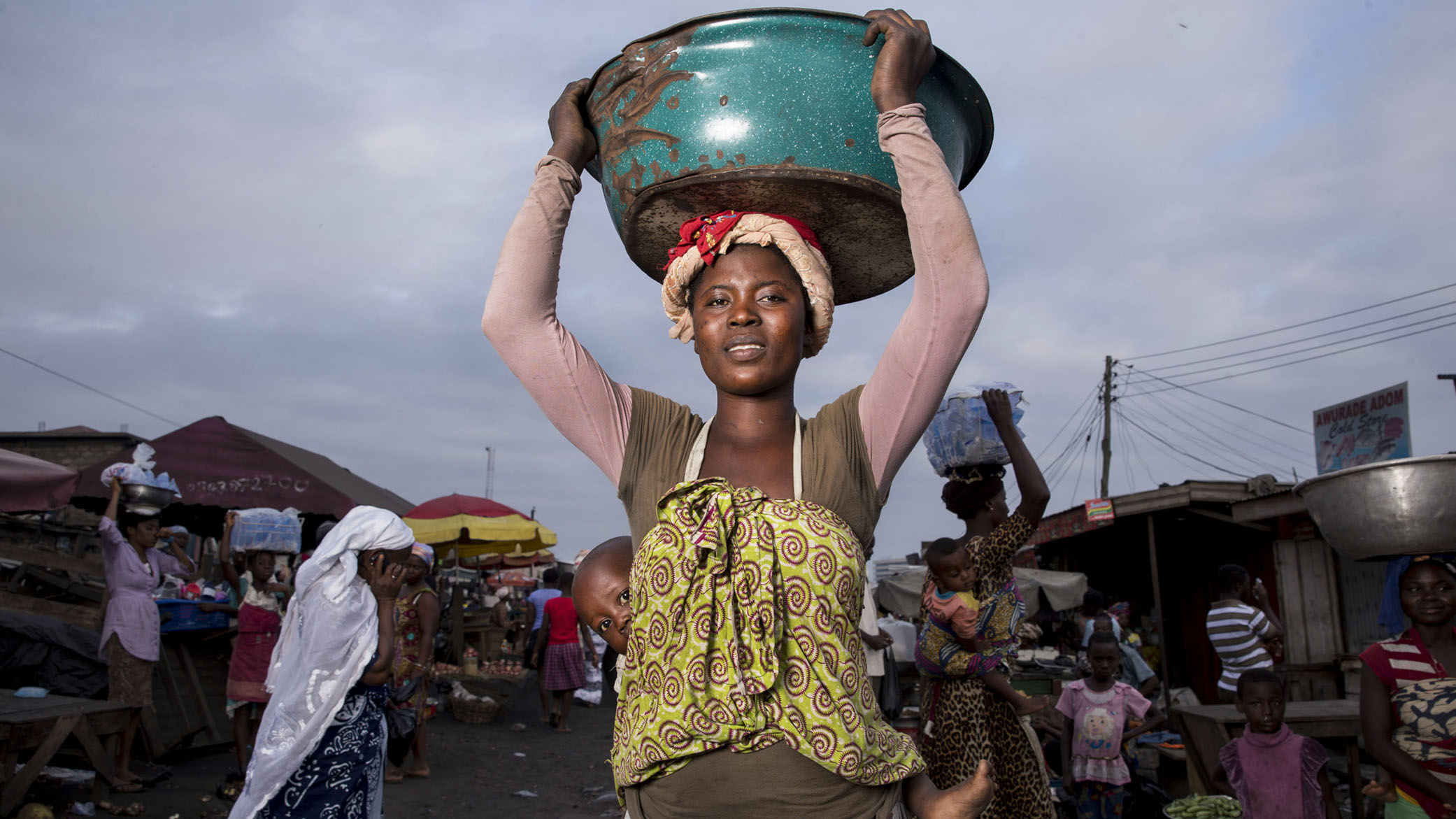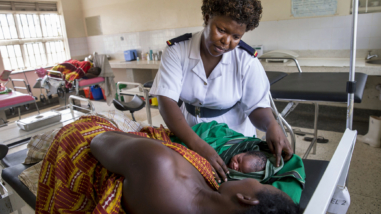Global nonprofit leaders on why women’s time and work must be part of future policy choices

Around the world, women continue to bear the brunt of COVID-19’s impact. Women are 88% of caregivers and health workers worldwide. They dominate jobs hit hardest by layoffs and closures—in retail, food service, hospitality, urban markets, and as cooks and caregivers in other people’s homes. And they are spending even more time caring for children and family members, and on household tasks while schools and childcare facilities remain shuttered.
That women work in different occupations, have jobs that earn less and lack labor and social protections, and often, providing the bulk of unpaid care at home isn’t new. Too often, governments overlook these realities when they make decisions on trade policies, urban planning, and economic recovery. It’s why the Hewlett Foundation gave $9 million last year in Women’s Economic Empowerment grants to organizations like Data2x, The World Bank’s Women, Business and the Law, and WIEGO. These organizations work to increase the amount and quality of data and research about women’s lives—and urge officials to use it in policy decisions that affect everyone—but affect men and women differently.
Last year, before the outbreak of COVID-19, we teamed up with StoryCorps to record conversations with six nonprofit leaders working from Nairobi to Mexico City to make women’s lives, including paid and unpaid work, visible and part of economic policy decisions. Their professional endeavors—and personal motivations—help us see the different ways women experience day-to-day life, and are affected by social and economic changes, including the COVID-19 pandemic and prevention measures. These six leaders continue their work to build a better world where women have more equality, opportunity, and prosperity.
Who appointed you to be captain of the bus?
Memory Kachambwa, Executive Director of the African Women’s Development and Communication Network speaks with Gretchen Donehower, who leads the Counting Women’s Work project at the University of California at Berkeley.
Memory Kachambwa’s first fight was with a boy on a bus outside her farming town near Harare, Zimbabwe. “Who appointed you to be captain of the bus?” she remembers telling him when he tried to take charge and told her to sit quiet. Today she runs the African Women’s Development and Communication Network (FEMNET) based in Nairobi. FEMNET’s 800 members in 46 African countries work to create an African society where women and girls live with dignity and equal rights.
In her StoryCorps conversation, Kachambwa speaks with Gretchen Donehower, who leads the Counting Women’s Work project at the University of California at Berkeley. As a teenager, Donehower told her mom she wanted to be the first female chair of the U.S. Federal Reserve Board. She now runs a global research project that has teams in 60 countries tracking how men, women, girls, and boys produce, consume, transfer, and save economic resources—including with a new tool developed to track this during the coronavirus.
Kachambwa and Donehower recall another health crisis that put a large extra unpaid care burden on women in sub-Saharan Africa: HIV/AIDS. Women, including grandmothers, were often the ones who cared for the sick and for orphaned children. Policymakers, they say, need to include the cost of women’s time caretaking to figure out how and where to allocate resources to respond to health and economic crises. The care economy, Kachambwa and Donehower agree, is part of the economy.
The unpaid work women do to make the world run
Maria Floro, an economics professor at American University and the head of Care Work and the Economy, speaks with Jenna Harvey, the global Focal Cities coordinator for Women in Informal Employment: Globalizing & Organizing (WIEGO).
Maria Floro grew up in the Philippines and saw her parents treat her and her brother very differently. She was expected to help in the household work, including cleaning her brother’s room—something that nagged at her even when she was only four or five years old. Jenna Harvey watched her mother take on the majority of care work in her home and for her grandparents. It made her curious about gender and the unpaid work women do to make the world run.
Today, Floro is an economics professor at American University and runs Care Work and the Economy, a network of researchers interested in incorporating care work and gender into macroeconomic and social policies. Harvey is the global Focal Cities coordinator for Women in Informal Employment: Globalizing & Organizing (WIEGO). As a global network—with Accra, Dakar, Delhi, Lima, and Mexico City as focal cities—WIEGO helps street vendors, waste pickers, domestic workers, and other informal workers organize themselves and use research and analysis to urge local, national, and global policymakers to improve their working conditions and opportunities.
I was the wrong person to tell those stories
Emilienne de León, the former director of Prospera, speaks with Global Press CEO Cristi Hegranes.
Emilienne de León and Cristi Hegranes believe women should be trusted to make their own decisions, lead their own movements, and tell their own stories. De León is the former executive director of Prospera, the international network of women’s funds. Prospera helps its 38 members—like Urgent Action Fund Africa—access financial and other resources to help women, girls, and trans people break down barriers to they can thrive. De León tells the story of a small group of domestic workers in Mexico City. They wanted to organize themselves to press for the same rights as other workers. With the help of a small amount of resources from a women’s fund—and the well-timed Academy Award and international acclaim for Alfonso Cuarón’s poignant documentary Roma about his childhood nanny—these workers were among those who helped persuade Mexico’s Congress to grant the county’s cleaners, cooks, caretakers, and other domestic workers basic labor rights, like limited work hours and paid vacations. That victory benefits more than two million people—mostly women—who are, for the first time, recognized as part of the formal labor market.
Hegranes, founder and CEO of Global Press tells de León all she ever wanted to do was be a foreign correspondent, but at age 24, she found herself in Nepal covering the civil war and realized she was the wrong person to tell those stories. She handed her pen that day to Prathima instead. In 2006, Hegranes opened Global Press to hire and train women like Prathima to report on the stories in their own communities. Global Press reporters now operate in more than 40 communities in Asia, Africa, and the Americas—as full-time employees with benefits—and produce high-quality, fact-checked, and rigorously edited stories of the issues they say matter most, while also sharing them in translation for global audiences, and following the Global Press Style Guide rules to ensure they refer to people and places in their stories with accuracy, dignity, and precision.
***
We are grateful to the StoryCorps’ staff and facilitators for helping us record, preserve, and share the stories of individuals working to ensure women around the world have full and fair opportunities to earn a living so they—and their families and communities—thrive.


